As the battery ages, its internal material deteriorates gradually and loses the ability to store electrical charges. Thus an older iPhone or Apple Watch doesn’t last as long as it did. But not just its life; its stability also comes into question, making the battery potentially dangerous.
However, not all old iPhone or Apple Watch batteries burst into flame or swell or harm their owners. So, let’s deep dive into the matter and determine whether your old iPhone or Apple Watch batteries are dangerous and how to know if you have a problematic battery.
Can an Apple Watch or iPhone battery malfunction?
While not too common, there have been reports of Apple Watch overheating and blowing up. iPhone batteries have also swollen up in the past. So, yes, the iPhone and Apple Watch batteries can become dangerous.
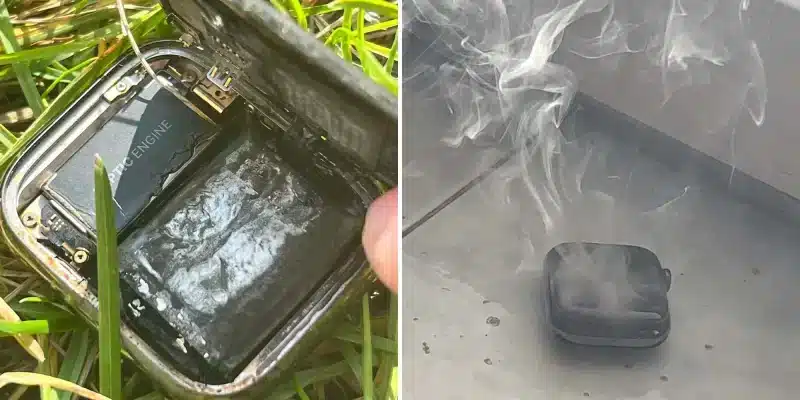
Initial battery degradation might be caused due to material failure, manufacturing error, or other innate defects caused due to ill maintenance.
Though a battery can get particularly dangerous during a short circuit. When a positive contact physically touches a negative one due to improper building, it releases the whole charge of the battery altogether and results in a violently exploded iPhone battery.
Why do old iPhone or Apple Watch batteries explode?
Your iPhone/Apple Watch may catch fire or explode for various reasons, but the battery is always to blame. Lithium-ion mobile batteries balance the positive and negative electrodes to enable recharging.
Sometimes, the battery’s internal parts may malfunction, produce a volatile reaction, and ignite. Following are some prominent reasons for the iPhone battery explosion.
Heat buildup
A key reason for battery explosion is higher temperatures. Old batteries have a higher onset temperature, so they must reach a higher temperature to enter thermal runaway. And if not an instant explosion, the constantly raising temperature can harm your skin and start a fire.
Apple believes the iPhone shouldn’t get much hotter than 113° F (45°C). As for Apple Watch, the optimal temperature is between 32° to 95° F (0° and 35° C). Because the device’s internal hardware might be harmed if it becomes that hot and remains in that state for a while.
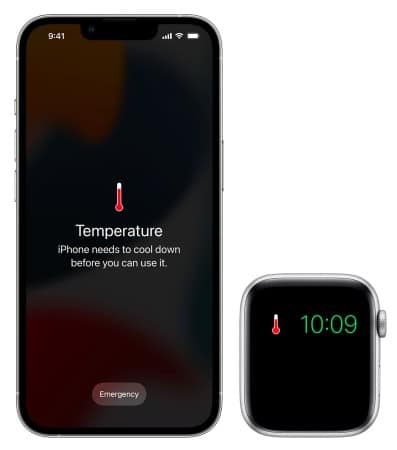
The good news is that Apple Watch batteries are significantly smaller and less dangerous than iPhone batteries. Besides, heat can escape from these batteries because of their excellent ventilation.
Also, you could notice a temperature warning on the phone’s screen. As a result, the battery of the iPhone can catch fire. So, check on your phone covers to see if it’s providing enough airflow and preventing your iPhone from getting uncomfortably hot.
Using low-quality accessories
You should never misplace your wall power converter or go through many USB charging cords while juicing your iPhone and Apple Watch. When buying replacements, always buy genuine Apple items. Also, contrary to popular belief, using your phone while charging won’t cause an iPhone battery explosion.
Besides, physical damage, long exposure to the sun, CPU-intensive malware, and problematic charging may short-circuit your iPhone.
All rechargeable batteries are consumables with a finite shelf life. So, they lose capacity and performance to the point where you must replace them. Also, battery deterioration might result in changes in iPhone/Apple Watch performance. I will tell you how you can enhance the iPhone and Apple Watch battery life.
Prevent battery explosion: The right way to maintain your device battery
A battery’s “chemical age” affects how long it will last. It considers several things, such as how well you took care of it and charged it how many times. Apple says your iPhone’s battery can not be charged more than 80% after 500 charging cycles.
You can use these battery-saving hacks for iPhone and Apple Watch to prolong battery life and improve performance. And ensure the following conditions:
1. Avoid overheating
High heat might result in diminished battery health and battery explosion. Besides overheating, it doesn’t like the cold too, which reduces its usable lifespan. But the cold effect only lasts until your battery heats back up. According to Apple, your iPhone can operate without harm at temperatures as high as 95° F.
So, beyond that, the battery may suffer. Numerous factors might unintentionally cause your iPhone to heat up too much. So, avoid charging it in the sun or attaching it in front of a heater vent in your vehicle. Although your iPhone has built-in safety features that temporarily shut your iPhone to stop additional harm.
2. Don’t go below zero
You may periodically discharge and then completely recharge a device’s battery to calibrate the internal sensor. But this is no longer the case with contemporary batteries. So, dropping your iPhone’s battery to 0% is harmful and will shorten its lifetime. Therefore, juice your iPhone often to avoid completely draining it.
Also, enable the Low Power Mode when your phone exceeds 20 percent. This setting can assist you in conserving battery life when the battery is about to die. So, it will lower brightness and turn off power-hungry functions like iCloud sync and AirDrop.
When to replace your battery?
For Apple Watch
Don’t worry, first of all. The likelihood of the Apple Watch battery malfunctioning, damaging, or burning you decreases with time. It may just lose the power to hold a charge as it ages. Check Apple Watch battery health and ensure it’s at a decent level.
However, you may always avoid battery explosion by spending a minimum cost to replace the Apple Watch battery. Apple will replace the battery on any Apple Watch for $79 in the US. If your battery ever fails, you may also buy a new battery from Apple.
Besides, if your watch is damaged or getting very warm, get it inspected and repaired. Also, avoid using a watch with a dead battery.
For iPhone
To maintain an appropriate battery life on your iPhone, you must replace it after quite some time. Though you can sustain for a long time if you follow the abovementioned behaviors. You need to bring your iPhone to an Apple Store or repair facility to get an Apple iPhone replacement battery.
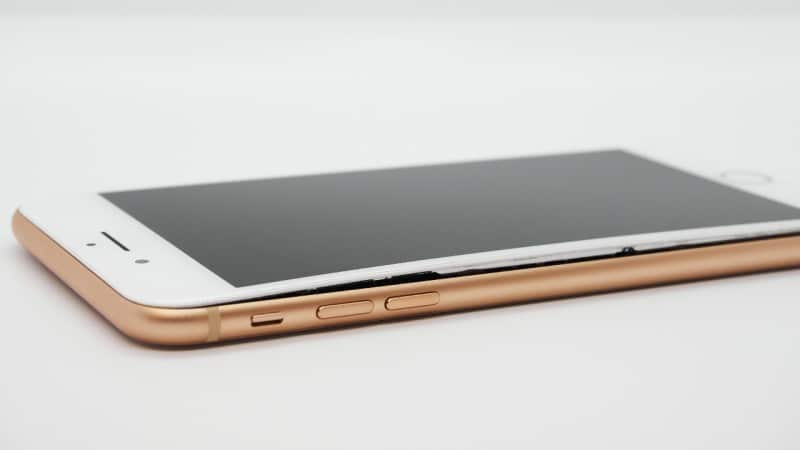
The crucial question is knowing if your iPhone has a battery problem. As you know, the iPhone battery’s health degrades with time. So, when the battery’s maximum capacity reaches 79% or less, it will show a warning “Your battery’s health is considerably impaired.”
And this is the quickest method to tell whether it’s time to replace the battery to avoid any mishap. If your battery only retains less than 80% and you have AppleCare coverage, get it changed at no extra cost.
Besides, other signs indicate your iPhone needs a new battery:
- The display is less bright than usual
- The speaker level is lower
- The screen freezes while scrolling
- Certain gaming applications have reduced frame rates
- Longer loading time for an app
Although you may never know about an upcoming iPhone battery explosion, keep your eye out. Notice if something is hissing close to the battery or your phone is becoming really warm and is not dissipating. Sometimes the batteries often begin to grow and bulge before they explode.
In this situation, never connect it to a power source. Also, to ensure it doesn’t catch fire, place it on a surface that is not flammable. Take it to an Apple Store immediately to have the professionals look it out.
Wrapping up
The complexities of battery chemistry can confuse you, but they won’t if you treat your battery well. You can maintain your battery healthy for longer if you refrain from these extremely simple behaviors. Also, numerous other factors will affect the health of your battery. But it’s negligible and won’t have a long-term influence.
Your battery will provide reliable service for 18 to 24 months if you take care of it before reaching 80% capacity. Fortunately, Apple provides a reasonably priced replacement service when it’s time to replace your battery.
Explore more…

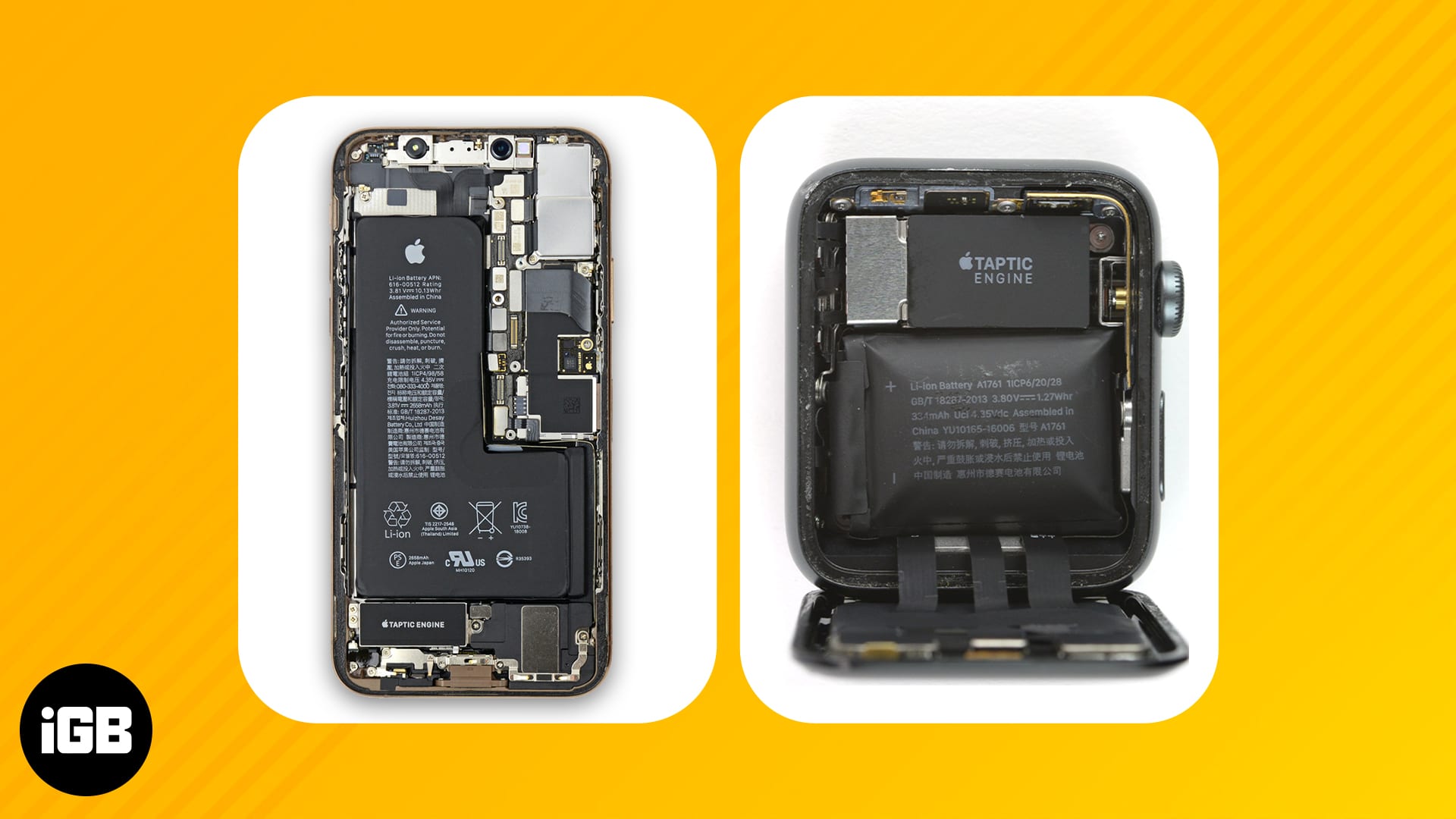
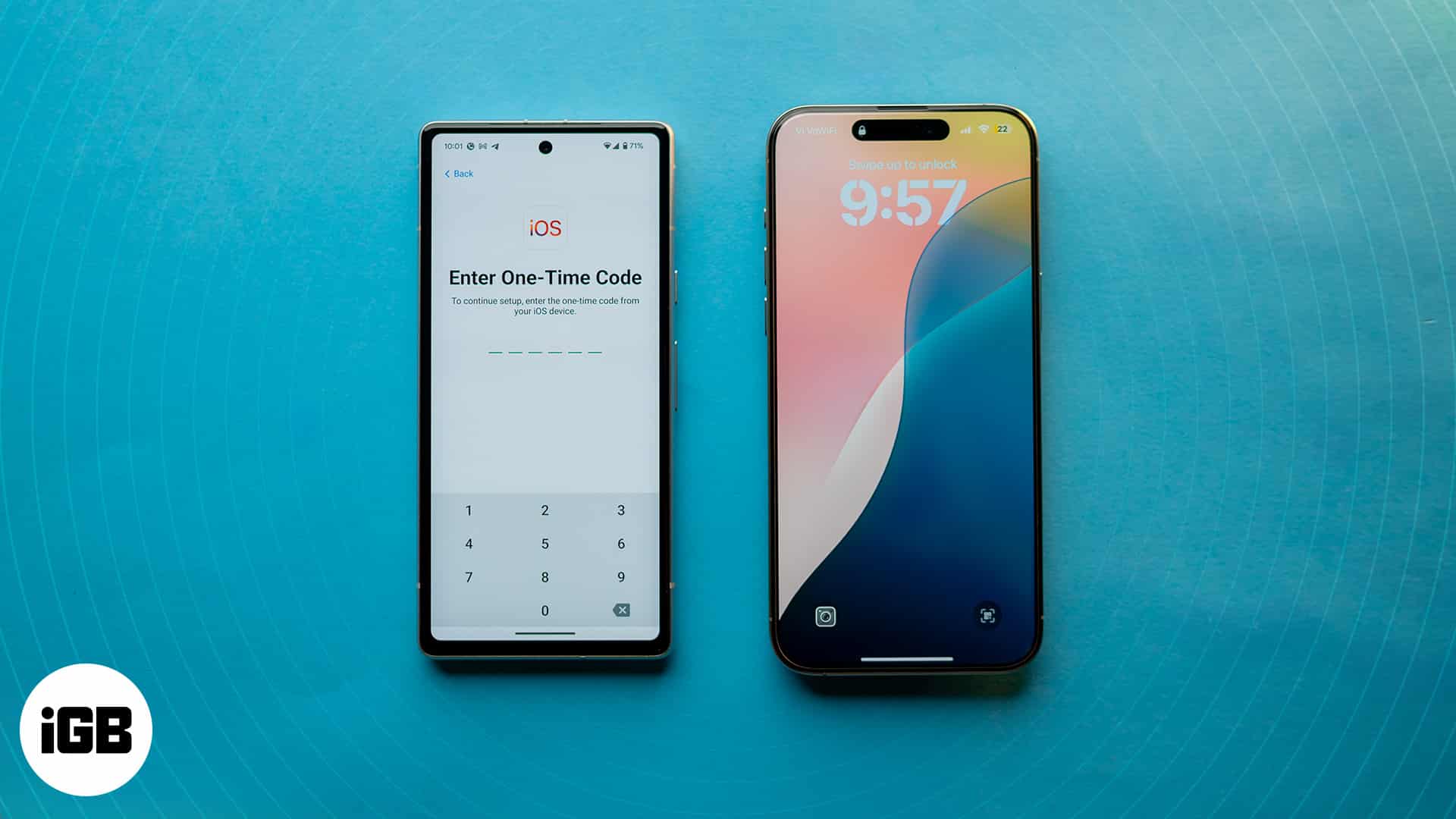






Leave a Reply